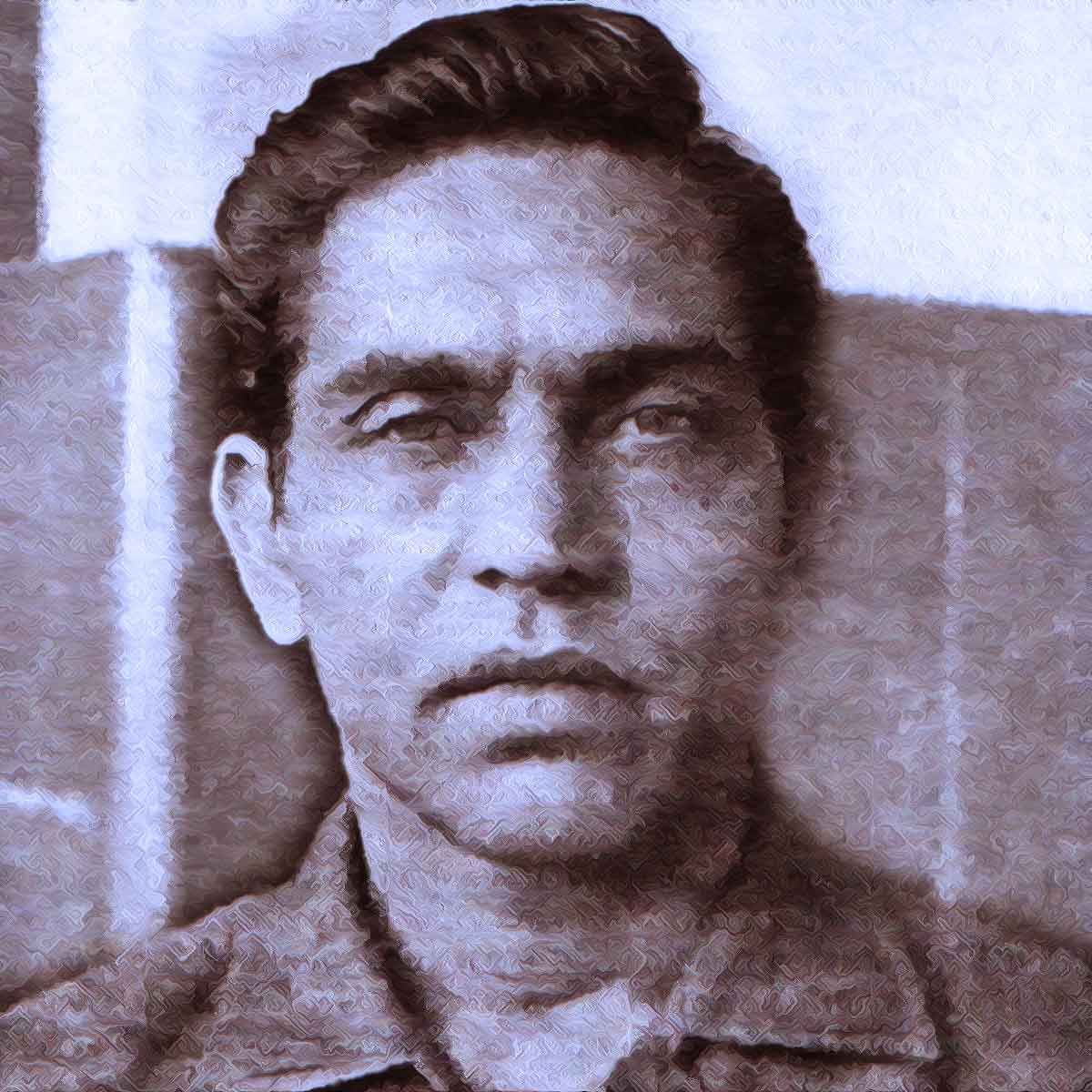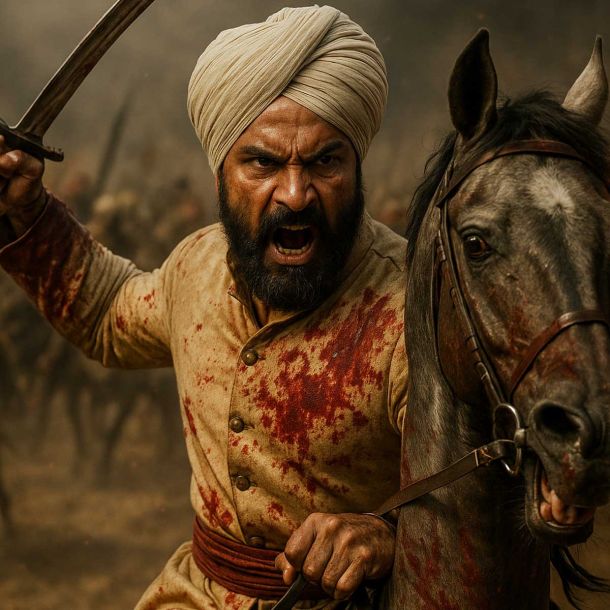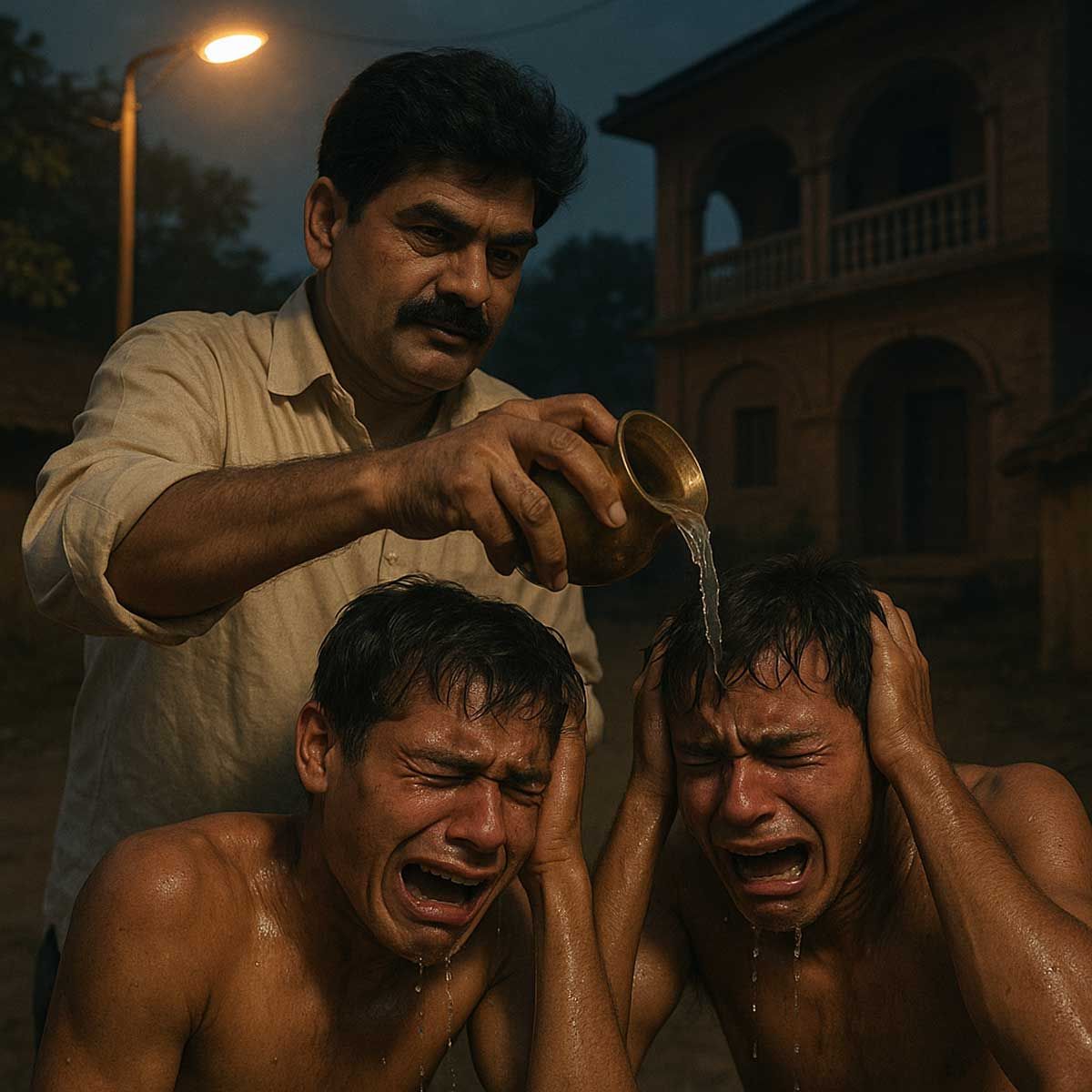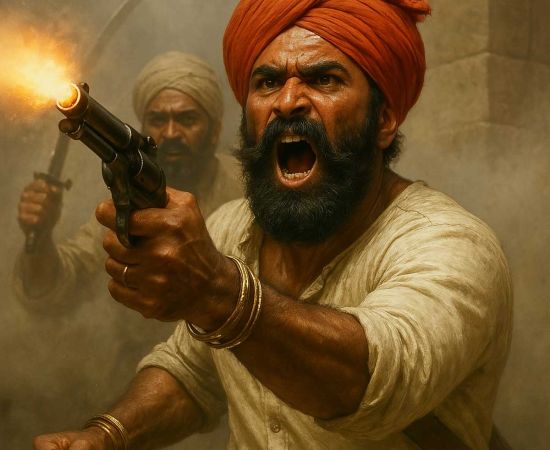MORE COVERAGE
Twitter Coverage
Satyaagrah
Written on
Satyaagrah
Written on
Satyaagrah
Written on
Satyaagrah
Written on
Satyaagrah
Written on
JOIN SATYAAGRAH SOCIAL MEDIA
Story of Hamid Dalwai, a man who started the triple talaq movement, and why it is impossible to reform Islam: Objects of criticism include the morality of the life of Muhammad, the founder of Islam

The death anniversary of the reformer of Islam Hamid Dalwai is an apt opportunity to examine why reforming Islam is an impossible task.
Story of Hamid Dalwai: a reformist of Islam
Hamid Dalwai is the man who started the triple talaq movement in the 1960s,1970s & 1980. Hamid Dalwai was Born at Mirjoli in the Konkan area of Maharashtra on September 29, 1932, Dalwai got connected with the Rashtra Seva Dal, a wing of the Socialist Party, and came close to socialist veterans like Bhai Vaidya.
Influenced by Ram Manohar Lohia, Jaiprakash Narayan, and Mahatma Gandhi, Dalwai started writing about the need for reform among Muslims.
Realising that writing alone would not suffice, he established the Indian Secular Society along with A B Shah in 1968 and went on to form the Muslim Satyashodhak Mandal in Pune on March 22, 1970.
The idea of the Mandal came from the Satyashodhak Samaj — a truth-seeking society — formed by 19th-century social revolutionary Mahatma Jyotirao Phule.
An ardent atheist and rationalist, Dalwai faced opposition from all quarters during his lifetime. Without any backing from political parties and organizations, he organized the first march of Muslim women in Mumbai demanding equal rights and scrapping of the talaq system.
Despite considerable effort, he could get together a mere seven Muslim women to participate in the march organized on April 18, 1966, but it was the first step.
 |
Why it’s impossible to reform Islam
Critics reject the idea that the Quran is miraculously perfect and impossible to imitate as asserted in the Quran itself. Criticism of Islam has existed since Islam’s formative stages but no reformation since then. Early written disapproval came from Christians and Jews as well as from some former Muslims such as Ibn al-Rawandi.
Criticism of Islam is broadly defined as criticism of the Islamic religion in its beliefs, principles, and/or any other ideas attributed to Islam. Very soon after the inception of Islam 1400 years back, it became very clear that this religion has many facets from which the world needs to be saved.
Objects of criticism include the morality of the life of Muhammad, the founder of Islam, in both his public and personal lives. Issues relating to the authenticity and morality of the scriptures of Islam, both the Quran and the hadiths, are also discussed by critics.
Islam has also been viewed as a form of Arab imperialism and has received criticism from figures from Africa and India for what they perceive as the destruction of indigenous cultures.
Islam’s recognition of slavery as an institution, which led to Muslim traders exporting as many as 17 million slaves to the coast of the Indian Ocean, the Middle East, and North Africa, has also been criticized.
Whether it’s view gender justice, terrorism, violence, or the educational system. Women are oppressed, gays are persecuted, and non-Muslims and even “heretical” Muslims are reduced to second-class citizens. Terrorist groups such as ISIS or Boko Haram implement these measures even more aggressively. They zealously destroy not just people’s freedom but also their very lives.
 |
The crucial question here is whether can Islam change — and Muslim-majority societies can evolve into free societies where religion is based on conscience, not coercion.
It has become crystal clear that Islam needs reformation. However, initiating the reform process is a near-impossible task. First, it’s important to agree on some basic concepts. For example, it is not “Islamophobic” for someone to criticize everyday conservative Islam generally and Islamism in particular. On the contrary, criticism is a prerequisite for any lasting reformation within Islam.
Reformation seems to be an impossible destiny for Islam as you cannot criticize Islam, you cannot comment on Quran and Hadith. The majority of the Muslims who follows Islam feels that Quran and Hadith is divine text and these divine text cannot be altered. They don’t read anything which is outside the Quran, they don’t accept anything which is not in the Quran. The Quran is everything to them. In the eyes of many intellectuals, this is a source of conflict.
Republics that are Islamic in their identity and have implemented the Sharia law there are many issues and Issues with freedom are one of them. A big part of the problem is related to Divine texts.
In countries like Saudi Arabia, Iran, Sudan, Afghanistan, or Pakistan, Islamic law, or Sharia, is implemented, with harsh punishments for “apostasy” or “blasphemy.” As a result, converts from Islam to other religions such as Christianity can be executed, or secularists who “insult” religion can be jailed or flogged.
Islam never went through the era of reformation. Due to its rigidness and hard belief in the Quran. In reality, the Quran and Hadith never went through the critical scrutiny of their ideas and texts.
As of 2014, about a quarter of the world’s countries and territories (26%) had anti-blasphemy and (13%) had anti-apostasy laws or policies. In 2017, 13 nations, all of which were Muslim majority nations, had the death penalty for apostasy or blasphemy.
For anyone who values human liberty, the predominantly Muslim part of the world is admittedly bleak today. According to the global “freedom map” of Freedom House, a non-partisan organization, most Muslim-majority nations are simply “unfree.” While a few — Turkey — rank as “partly free,” there is only one Muslim-majority country whose citizens may enjoy being “free.” That is Tunisia, the only country that was able to reap a liberal democracy from the tumultuous winds of the Arab Spring of 2011.
 |
Apostasy in Islam
“How can someone reform religion when harsh Islamic laws like Death penalties are there”. According to Islamic law, apostasy is identified by a list of actions such as conversion to another religion, denying the existence of God, rejecting the prophets, mocking God or the prophets, idol worship, rejecting the sharia, or permitting behavior that is forbidden by the sharia, such as adultery or the eating of forbidden foods or drinking of alcoholic beverages.
The majority of Muslim scholars hold to the traditional view that apostasy is punishable by death or imprisonment until repentance, at least for adult men of sound mind.
The kind of apostasy which the jurists generally deemed punishable was of the political kind, although there were considerable legal differences of opinion on this matter. Wael Hallaq states that “[in] a culture whose lynchpin is religion, religious principles, and religious morality, apostasy is in some way equivalent to high treason in the modern nation-state”.
Laws prohibiting religious conversion run contrary to Article 18 of the Universal Declaration of Human Rights, which states that “[e]everyone has the right to freedom of thought, conscience, and religion; this right includes freedom to change his religion or belief, and freedom, either alone or in community with others and in public or private, to manifest his religion or belief in teaching, practice, worship, and observance.”
 |
Islam and Violence
The Quran’s teachings on matters of war and peace have become topics of heated discussion in recent years. On the one hand, some critics claim that certain verses of the Quran sanction military action against unbelievers as a whole both during the lifetime of Muhammad and after.
The Quran says, “Fight in the name of your religion with those who fight against you.” The Quran: (8:12): “…cast terror in their hearts and strike upon their necks.” The phrase that they have been “commanded to terrorize the disbelievers” has been cited in the motivation of Jihadi terror.
Another aim and objective of jihad are to drive terror into the hearts of the [infidels]. To terrorize them. Did you know that we were commanded in the Qur’an with terrorism? …Allah said, and prepare for them to the best of your ability with power, and with horses of war. To drive terror in the hearts of my enemies, Allah’s enemies, and your enemies. And other enemies which you don’t know, only Allah knows them.
So, we were commanded to drive terror into the hearts of the [infidels], to prepare for them with the best of our abilities with power. Then the Prophet said, nay, the power is your ability to shoot. The power which you are commanded with here is your ability to shoot. Another aim and objective of jihad are to kill the [infidels], to lessen the population of the [infidels]…it is not right for a Prophet to have captives until he makes the Earth warm with blood… so, you should always seek to lessen the population of the [infidels].
Following are the further issues in Islam
Beheadings
Home violence with women
Child Marriage
Short term marriages
Gender injustice
Attitude towards Homosexual
 |
What do Muslims do with the reformers & critics of Islam
Islamic laws against criticism, conversion, or any activities which can destroy the image of Islam are very harsh. Death penalties, punishment in public places, and stone pelting on the reformists are very common.
Muslims do not tolerate any comment on their holy book Quran and their Prophet Muhammad Paigamabar. We might recall the incident that happened in France when one of the editors depicted the cartoon of Muhammad Paigambar. He got killed by one terrorist.
Whosoever writes, speaks, portrays anything against Islam, or gives any logical end to the teaching of the divine texts either gets isolated from society or gets killed by the Jihadi terrorist. Whosoever speaks or tries to reform or tries to explain the verses with a new dimension, faces harsh criticism or life threats. Many reformists across the globe are in an asylum because they have questioned the teachings of Islam.
Hamid Dalwai was one of those rare critics of Islam who died on May 3, 1977, due to a kidney ailment at the age of 44. His death was celebrated by Islamic fundamentalists and meetings to pay him tributes were disrupted. As per Dalwai’s will, his body was cremated and not buried despite opposition from the community.
References:
- (This article has been contributed by Shri Digvijay Mishra)
- (Featured Image Source: Siasat.com)
 Support Us
Support Us
Satyagraha was born from the heart of our land, with an undying aim to unveil the true essence of Bharat. It seeks to illuminate the hidden tales of our valiant freedom fighters and the rich chronicles that haven't yet sung their complete melody in the mainstream.
While platforms like NDTV and 'The Wire' effortlessly garner funds under the banner of safeguarding democracy, we at Satyagraha walk a different path. Our strength and resonance come from you. In this journey to weave a stronger Bharat, every little contribution amplifies our voice. Let's come together, contribute as you can, and champion the true spirit of our nation.
 |  |  |
| ICICI Bank of Satyaagrah | Razorpay Bank of Satyaagrah | PayPal Bank of Satyaagrah - For International Payments |
If all above doesn't work, then try the LINK below:
Please share the article on other platforms
DISCLAIMER: The author is solely responsible for the views expressed in this article. The author carries the responsibility for citing and/or licensing of images utilized within the text. The website also frequently uses non-commercial images for representational purposes only in line with the article. We are not responsible for the authenticity of such images. If some images have a copyright issue, we request the person/entity to contact us at This email address is being protected from spambots. You need JavaScript enabled to view it. and we will take the necessary actions to resolve the issue.
Related Articles
- Tales of Fraud, funding, forced religious conversion and insulting Hindu gods and goddesses after brainwashing: How tribals were converted to Islam in Gujrat - “Aapka paigam London pahucha diya hai, achha kaam ho raha hai"
- Why authorities ignoring conspiracy of Sexual objectification of Hindu women: #Hslut4Mstud Users on Reddit, Twitter and Tumblr are targeting Hindu women with pornographic content ‘for Muslim studs’
- Bajrang Dal's peaceful rally in Mewat (mini Pakistan) is painted panic mongering by Islamist Media
- Devkinandan Thakur's statement is a slap in the face of the Islamist hoodlum from Hyderabad - “Many more Yogis and Modis standing in line…”
- If only India’s partition chilling wound was not enough, Gandhi did his last protest again only to blackmail India into giving 55 crores to Pakistan, dragged Hindu, Sikh refugees seeking shelter in mosques to die in cold: And we call him Mahatma, not for
- A sudden surge of Land Jihad in Gujrat is forcing Hindus and Jains to leave their homes resulting in localities to shift demography: A tale of two cities, Gopipura in Surat and Soni Falia in Bharuch
- ‘Islamic Liberal’ journalist Fatima Bhutto, a British-Pakistani drags Hindus and Modi in her article in The Guardian on Pak blasphemy murder
- Mohammedan man taken prisoner for grooming and holding hostage a 15-year-old Hindu girl, claimed “We are in love for 7 years”: Kasganj, UP
- Dewan Bahadur saheb was made to quit as a Speaker because he wasn't a Muslim: Tragedy of a Christian leader who backed Pakistan’s creation
- Actor Urfi Javed admits that most hate she receive is from Muslims, confirms that she doesn’t believe in Islam and will never marry a Muslim man
- Darul Uloom answers modern questions: Mobile recharging and talking on phone is halal, but taking photos and Job in Paytm is haram and Angels need Identity cards to enter a house
- A threat 'to kill all the Hindus and burn the village’ resulted in Hindus boycotting Muslims in Chhattisgarh: Know what exactly happened
- ‘Pakistan wants no hostility with India for 100 years, but rapprochement with India not possible when Modi govt is in power’: Pakistan to unveil its first-ever National Security Policy
- Maulana Tariq Jameel from Deobandi school of Islam claims, "When 130-feet tall Hoor in Jannat points a finger, sun disappears": One Maulana preached that women should offer herself to husband under all circumstances
- ‘Casteless Hindu’ is Not a Paradox. It is The keystone of ‘Ghar Wapsi’ and Hindutva



























